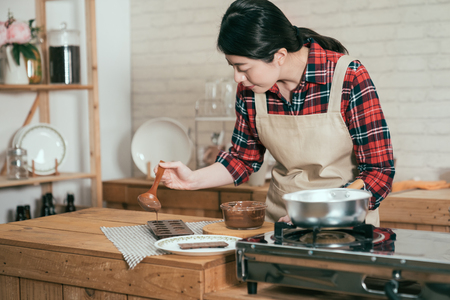Introduction to Eco-Friendly Kitchen Renovations
In recent years, eco-friendly kitchen renovations have rapidly gained traction among UK homeowners, reflecting a broader shift towards sustainability and conscious living. This growing demand is driven by increased awareness of environmental issues, as well as the desire to reduce energy bills and improve overall home value. Opting for green upgrades in the kitchen—often considered the heart of the British home—offers a host of benefits. Not only do sustainable choices help minimise carbon footprints and conserve natural resources, but they also create healthier indoor environments for families. As government initiatives and incentives continue to promote greener living across the UK, more households are discovering that environmentally responsible renovations are not just a trend—they’re a smart, future-focused investment.
Choosing Sustainable Materials
When planning an eco-friendly kitchen renovation in the UK, selecting sustainable materials is a pivotal step. Prioritising British-made or recycled products not only supports local industries but also significantly reduces the carbon footprint associated with transportation. Below, we provide a practical guide to sourcing environmentally responsible worktops, flooring, and cabinetry.
Worktops: Eco-Conscious Choices
Opt for worktops manufactured from recycled materials such as glass or composite stone. Alternatively, seek out timber worktops certified by the Forest Stewardship Council (FSC), ensuring the wood comes from responsibly managed forests. British-made options, such as locally quarried slate or granite, also minimise environmental impact.
| Material | Eco Credentials | UK Availability |
|---|---|---|
| Recycled Glass Composite | High recycled content, low VOC emissions | Readily available from UK suppliers |
| FSC-Certified Timber | Sustainably sourced, renewable | Widely stocked by British retailers |
| British Granite/Slate | Low transport emissions, durable | Sourced within the UK |
Flooring: Durable and Green Solutions
Bamboo and cork are popular for their rapid renewability and resilience. If you prefer traditional hardwood, choose reclaimed or FSC-certified options. For a contemporary look, consider tiles made from recycled ceramics. Many British manufacturers now offer eco-friendly flooring that aligns with both style and sustainability objectives.
Cabinetry: Responsible Sourcing and Low Impact Finishes
Select cabinetry crafted from recycled materials or reclaimed wood. Flat-pack kitchens made in the UK often use chipboard containing recycled content and water-based adhesives, reducing harmful off-gassing. Ensure finishes are water-based and low in volatile organic compounds (VOCs) to further improve indoor air quality.
Top Tips for UK Homeowners:
- Seek out local showrooms that champion sustainability credentials.
- Ask suppliers about product life cycle analyses and end-of-life recyclability.
- Consider modular designs that allow for easy replacement or upgrading of individual components rather than entire units.
- Always verify certifications such as FSC, PEFC, or those specific to recycled content.
Investment Perspective:
Sustainable choices may carry a slight premium upfront, but they typically offer long-term value through durability and energy efficiency. Furthermore, eco-friendly features are increasingly attractive to buyers in the UK housing market—potentially boosting your home’s resale appeal.

3. Energy-Efficient Appliances
When planning an eco-friendly kitchen renovation in the UK, prioritising energy-efficient appliances is a strategic move that pays dividends both for the environment and your household budget. Selecting white goods—such as fridges, dishwashers, ovens, and washing machines—that bear high energy ratings is crucial. In the UK, look for products with an A+++ or A++ rating on the EU Energy Label or their updated equivalents post-Brexit, which indicate top-tier efficiency and compliance with British standards.
Beyond traditional white goods, integrating smart technology into your kitchen can further enhance energy savings. Smart meters, programmable thermostats, and app-controlled appliances allow homeowners to monitor and control energy consumption in real time. This not only helps you stay within your desired usage but also aligns with Ofgem’s push towards smarter, greener homes across the country.
Investing in induction hobs over conventional electric or gas hobs is another savvy choice; they heat up faster and use less energy by directly transferring heat to the pan. Opting for a modern, efficient boiler or instant hot water tap can also reduce your utility bills while supporting the UK government’s drive to cut carbon emissions. When choosing these technologies, always ensure they meet British Standards (BS) and carry certifications from trusted bodies such as BEAB or BRE.
Ultimately, the upfront investment in premium, energy-saving appliances is offset by long-term reductions in electricity and water bills—a win-win for both your wallet and the environment. By staying informed about UK regulations and taking advantage of schemes like the Energy Company Obligation (ECO), you’ll future-proof your kitchen while setting a benchmark for sustainable living.
4. Water Conservation Solutions
Adopting water-saving strategies is a critical component of an eco-friendly kitchen renovation, particularly for UK homeowners facing rising utility costs and increasing awareness of environmental impacts. Sustainable water management not only reduces household bills but also enhances property value—a key consideration in the British housing market.
Tips for Installing Low-Flow Taps
Swapping out traditional taps for low-flow alternatives is one of the simplest ways to cut down on water usage. Modern low-flow taps available across the UK are designed to reduce flow rates without compromising performance, making them a practical investment. Look for taps with aerators or flow restrictors, which can save up to 50% of water compared to standard models. Installation is straightforward and can often be completed as a DIY project, but hiring a local plumber ensures compliance with UK plumbing regulations.
Efficient Dishwashers: Choosing the Right Model
When selecting a new dishwasher, prioritise models with the highest water efficiency ratings, such as those rated A or above on the EU energy label (still widely recognised in the UK). Energy-efficient dishwashers typically use less than 10 litres per cycle—far less than washing by hand. Features like eco-wash settings and half-load options further tailor consumption to your needs, aligning with both sustainability goals and daily routines.
| Appliance/Feature | Water Usage Per Cycle | Key Benefit |
|---|---|---|
| Standard Dishwasher | 12–16 litres | Common but higher consumption |
| Eco-Efficient Dishwasher | 6–10 litres | Significant water savings |
| Hand Washing (per 15 mins) | Up to 30 litres | Inefficient; avoid if possible |
Rainwater Harvesting Systems for British Homes
The UKs frequent rainfall makes rainwater harvesting an attractive option for eco-conscious renovators. While full-scale systems may suit rural properties, even compact rainwater diverters and storage tanks can be retrofitted into urban gardens or under decking. Collected rainwater is ideal for tasks such as watering plants, cleaning patios, or even flushing toilets if plumbed accordingly. When planning your system, consider local council regulations and potential incentives for sustainable upgrades.
Market Trend Insight:
The demand for water-efficient appliances and solutions is growing in the UK property sector, driven by both government targets and consumer preferences. Investing in these technologies not only future-proofs your kitchen against tightening regulations but also positions your home favourably should you decide to sell.
5. Waste Reduction and Recycling
For UK homeowners aiming to create a truly eco-friendly kitchen, integrating effective waste reduction and recycling solutions is essential. Not only does this approach contribute to environmental sustainability, but it also aligns with the latest trends in responsible home renovation.
Smart Waste Separation Units
Modern British kitchens benefit greatly from built-in waste separation systems that make recycling effortless. Consider installing pull-out cupboards with dedicated bins for recyclables, general waste, and food scraps. Many UK councils provide detailed guidance on sorting plastics, glass, paper, and metals, so customising your units to reflect local requirements can significantly boost your household’s recycling efficiency.
Composting Solutions for the British Climate
Composting is increasingly popular across the UK and is an excellent way to manage food waste sustainably. Choose a compact indoor composting bin for easy day-to-day use, or invest in a ventilated outdoor compost container suitable for British weather. Not only will you reduce landfill contributions, but you’ll also produce nutrient-rich compost perfect for your garden or allotment—a smart investment for both your home and the environment.
Embracing Local Recycling Practices
Each council in the UK has its own guidelines and collection schedules, so it’s wise to stay informed about what can and cannot be recycled in your area. Labelling bins clearly in your kitchen helps everyone in the household follow best practices. For added convenience, look for appliances and fixtures designed with integrated recycling solutions—these are increasingly available as sustainable renovation gains momentum in the UK market.
By prioritising waste reduction and recycling during your kitchen renovation, you’re not just following a trend—you’re making a meaningful investment in your property’s value and Britain’s greener future.
6. Supporting Local and Ethical Brands
When considering an eco-friendly kitchen renovation, choosing products from UK-based suppliers and sustainable brands with strong ethical credentials is a strategic investment that goes beyond environmental impact. Supporting local businesses helps reduce the carbon footprint associated with long-distance transportation, ensuring your new kitchen is truly sustainable from start to finish. Moreover, British manufacturers are increasingly transparent about their sourcing and production practices, making it easier for homeowners to verify claims of sustainability and ethical labour.
The Economic and Environmental Upside
Investing in local, ethical brands delivers tangible benefits. Not only do you contribute to the UK economy by supporting skilled craftspeople and small businesses, but you also encourage the growth of green jobs in your community. Many UK-based kitchen suppliers now offer cabinetry made from FSC-certified wood, worktops from recycled materials, and appliances with high energy ratings tailored for British homes. By opting for these choices, you help set a precedent for responsible consumer behaviour that pushes the market further towards sustainability.
Transparency and Traceability
One of the key advantages of choosing local and ethical brands is greater transparency. UK companies are often subject to rigorous standards for environmental management and worker rights, which means you can have confidence in the provenance of your purchases. Look out for certifications such as Fairtrade, The Soil Association, or B Corp status when selecting fittings, finishes, or kitchenware—these marks provide extra reassurance that you’re investing in genuinely sustainable solutions.
A Sustainable Choice That Adds Value
Making informed decisions to favour local and ethical brands doesn’t just enhance your eco-credentials—it can also boost your home’s value. Potential buyers are increasingly attracted to properties that showcase sustainable features and responsible sourcing. This alignment with current market trends positions your renovated kitchen as a modern, future-proof asset within the UK property landscape.
7. Future-Proofing Your Kitchen Investment
Investing in an eco-friendly kitchen renovation is more than a short-term trend; it’s a strategic move to future-proof your property while supporting the UK’s sustainability agenda. To maximise long-term value and appeal, homeowners should prioritise materials and technologies that not only meet current eco standards but also anticipate forthcoming regulations and consumer preferences. Opt for energy-efficient appliances with high EPC ratings, durable worktops made from recycled or responsibly sourced materials, and low-VOC paints to improve indoor air quality. Incorporating smart home technology, such as programmable taps or intelligent lighting systems, can enhance convenience and reduce utility bills—an attractive prospect for future buyers.
Aligning with Evolving UK Market Trends
The UK market is increasingly favouring properties with strong green credentials. Features such as water-saving fixtures, induction hobs, and built-in recycling solutions are now sought-after by environmentally conscious buyers. By staying ahead of these trends, you ensure your kitchen remains competitive in the property market, appealing to both current tastes and emerging regulatory requirements.
Resale Value and Investment Security
Research indicates that homes boasting sustainable upgrades often achieve higher resale values and faster sale times. Eco-friendly renovations signal to potential buyers that your property is well-maintained, cost-efficient, and forward-thinking—a compelling combination in today’s housing landscape.
Sustainable Choices for Lasting Impact
Ultimately, the most effective way to future-proof your kitchen investment is to make decisions rooted in sustainability and adaptability. Choose timeless designs over fleeting fads, prioritise products with robust warranties, and remain informed about evolving green technologies. By doing so, you’ll enjoy a stylish, efficient kitchen today while safeguarding its value for years to come within the unique context of the UK housing market.


